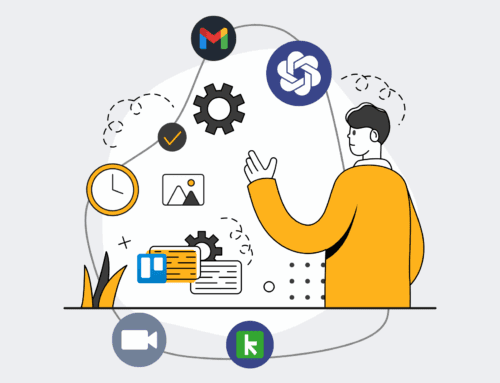Tackling Interview Coordination Challenges with Technology: A Strategic Approach to Modern Hiring
In the competitive landscape of talent acquisition, securing top-tier candidates is paramount. Yet, for many organizations, the journey from application to offer is fraught with a largely invisible but immensely costly bottleneck: interview coordination. What seems like a straightforward process of connecting candidates with hiring managers often devolves into a complex, time-consuming dance of email threads, calendar clashes, and missed opportunities. This isn’t just an administrative headache; it’s a strategic impediment that can lead to delayed hires, a poor candidate experience, and ultimately, the loss of coveted talent to more agile competitors.
The Hidden Drain: Manual Overload and Missed Opportunities
Consider the typical interview scheduling process. A recruiter juggles multiple candidates, each with unique availability, alongside the ever-changing calendars of several interviewers across different departments and time zones. The manual back-and-forth, the constant checking of calendars, sending reminders, and re-scheduling due to unforeseen conflicts consumes an astonishing amount of high-value professional time. This isn’t just a recruiter’s burden; it impacts hiring managers, executive leadership, and the candidates themselves. When recruiters are bogged down in logistics, they have less time for crucial activities like sourcing, candidate engagement, and strategic talent mapping. This inefficiency doesn’t just slow down hiring; it actively diminishes the candidate experience, which is increasingly critical in today’s talent market. Candidates often interpret slow, disorganized scheduling as a reflection of the company’s internal operations, leading to disengagement or even withdrawal.
The Cumulative Cost of Coordination Chaos
The financial implications of inefficient interview coordination are substantial. Delayed hiring means prolonged vacancies, impacting team productivity and potentially lost revenue. The time spent by multiple high-salaried individuals on scheduling tasks that could be automated represents a direct operational cost. Beyond direct costs, there’s the opportunity cost: the best candidates are often off the market quickly. A cumbersome scheduling process can mean the difference between securing an ideal hire and losing them to a competitor who offers a smoother, more professional experience. We’ve seen firsthand how an HR tech client saved over 150 hours per month by automating their resume intake and parsing process, translating directly into significant operational savings and faster time-to-hire. This principle extends readily to interview scheduling, where the aggregation of small, manual tasks quickly becomes a significant operational drag.
Technology as the Strategic Differentiator
The solution isn’t simply to “work harder” at scheduling; it’s to work smarter by leveraging technology. Modern automation and AI tools offer a profound shift from reactive, manual coordination to proactive, intelligent orchestration. This isn’t about replacing the human element of recruiting but augmenting it, freeing up recruiters and hiring managers to focus on the human connections that truly matter. For high-growth B2B companies, especially those with $5M+ ARR, eliminating human error and reducing operational costs through sophisticated automation is not just an efficiency play—it’s a scalability imperative.
Beyond Basic Scheduling: AI-Powered Interview Orchestration
While simple scheduling tools can help, true transformation comes from AI-powered interview orchestration platforms. These systems go beyond merely finding common availability. They can:
- **Intelligently Match Interviewers:** Based on roles, skills, availability, and even historical performance data.
- **Automate Logistics:** Send personalized invitations, calendar invites, pre-interview instructions, and post-interview feedback forms automatically.
- **Dynamically Adapt:** Automatically suggest alternative times or re-route interviews if a conflict arises, minimizing manual intervention.
- **Integrate Seamlessly:** Connect with your Applicant Tracking System (ATS), CRM (like Keap), and communication platforms (like Unipile) to ensure a single source of truth for all candidate interactions. This is where frameworks like OpsMesh shine, creating a connected ecosystem rather than siloed tools.
- **Capture Feedback Efficiently:** Standardize and automate the collection of interviewer feedback, accelerating decision-making and ensuring all key stakeholders provide input in a timely manner.
This level of integration and automation drastically reduces the low-value, repetitive tasks that high-value employees are currently burdened with. It ensures that every step of the interview process is streamlined, professional, and efficient, reflecting positively on your organization.
Reclaiming Time and Talent: The 4Spot Consulting Approach
At 4Spot Consulting, our strategic-first approach means we don’t just build; we plan. Our OpsMap™ diagnostic is precisely designed to uncover these kinds of inefficiencies in your HR and recruiting operations. We identify where manual coordination is draining resources, causing delays, and hindering your ability to attract top talent. From there, our OpsBuild™ framework implements tailored automation and AI systems, leveraging tools like Make.com to connect disparate systems and create robust, scalable solutions. We focus on delivering tangible ROI, ensuring every automation leads to measurable improvements in time savings, cost reduction, and enhanced scalability.
Our expertise in HR and Recruiting Automation helps companies eliminate human error and reduce operational costs by automating everything from initial candidate screening to complex multi-stage interview scheduling. The goal is clear: save you 25% of your day by freeing up your team from the mundane, allowing them to focus on strategic initiatives and meaningful candidate engagement. You’re not just implementing technology; you’re investing in a more agile, competitive talent acquisition strategy.
A Glimpse into the Future of Interview Management
Embracing technology for interview coordination transforms it from a necessary evil into a strategic asset. It allows for faster hiring cycles, a superior candidate experience, and more efficient use of your team’s valuable time. This shift is crucial for businesses looking to scale their talent acquisition efforts without scaling their operational overhead. It’s about designing a system that works for you, rather than your team working tirelessly to make a broken system function.
If you would like to read more, we recommend this article: Mastering AI-Powered Interview Scheduling for Strategic Talent Acquisition









